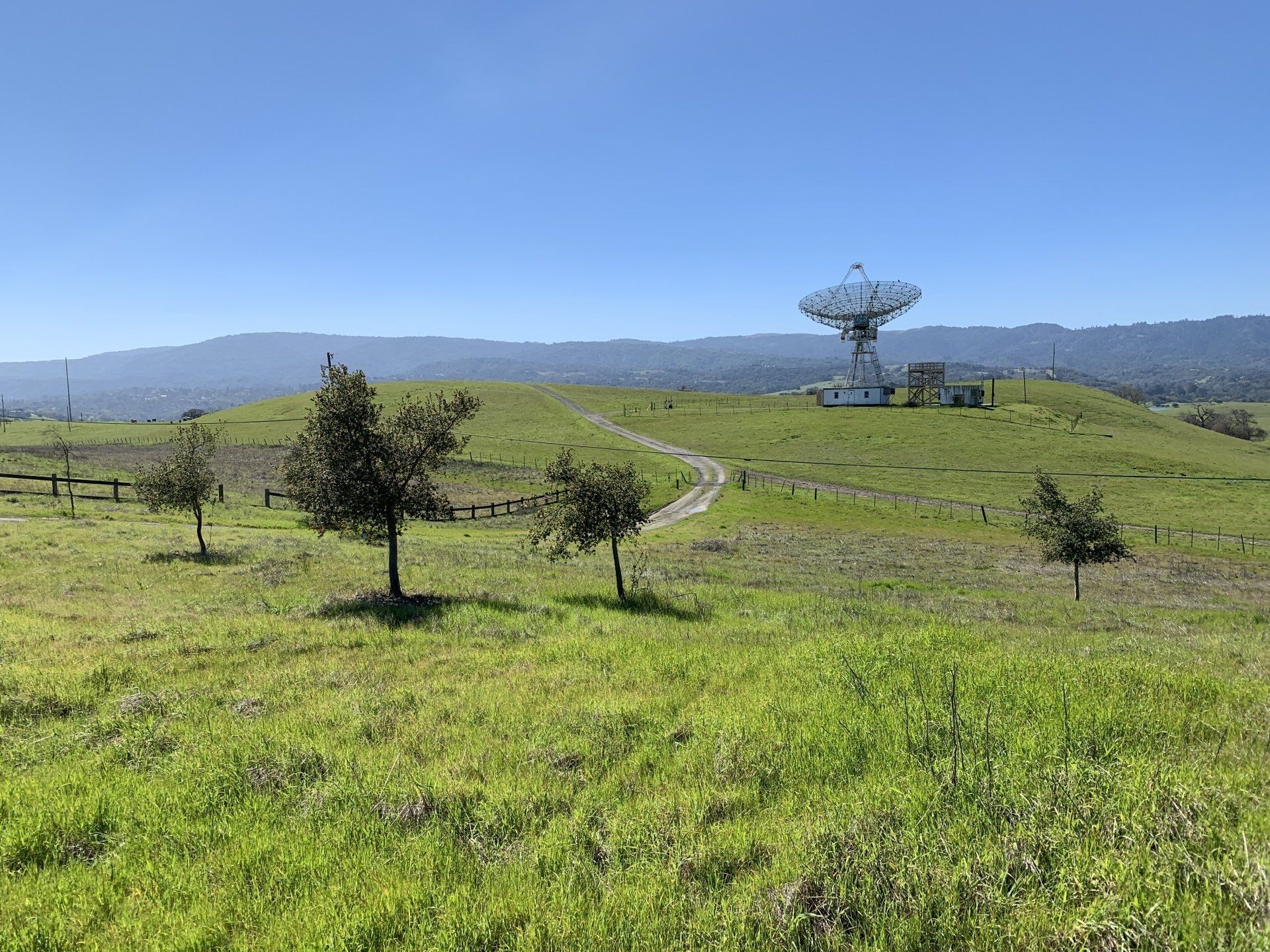TRAILBLAZING THOUGHTSabout Startups, Technology, Marketing.
Hey, thanks for visiting my page! I am Dirk Schart, Chief Marketing Officer and President of the Enterprise Augmented Reality startup RE'FLEKT. I mentor technology startups for the German Accelerator
in the Silicon Valley, previously I built Hyperloop's Digital Innovation Lab
and co-founded MobilityOS.
You find a lot of stuff about deep tech products and marketing but I often struggled with finding simple examples, templates and tools. European startups want to understand the Silicon Valley and US startups the European markets. My mission is to share what I have learned in both worlds and how I help startups to market their products and grow.
ARTICLES
Urgency is the missing ingredient that changes the adoption of emerging technologies such as AR, VR or Blockchain. Technology markets are changing as buyers convert from innovation labs to enterprise rollouts and how this transforms the way technology is reshaped to solve greater problems of higher urgency.
How can you get access to almost unlimited knowledge? Why is it essential to meet founders who have done it before? What is that mindset thing everyone is talking about in the Valley? In this article, I will share my experiences about the ‘Learn & Share’ mindset and why it is beneficial to build a business and bring early-stage tech products to the market—with examples from meetings with founders, advisors, and investors. Here’s my background. I am the Chief Marketing Officer and President of REFLEKT Inc., the US entity of the Munich-founded tech startup simplifying industrial maintenance, operations and training with Augmented Reality. I started building our US business out of Sunnyvale in the Bay Area and turned it from zero to a recognized player within one year. In that year, I had the chance to learn from founders and advisors who have built several startups and who understand what it means to fail and learn. These meetings motivated me to share what I have learned and why I believe there is no better place to learn so much in such a short time. How can you learn in the Silicon Valley? One way is to start watching HBO’s Silicon Valley series. Seriously! This way, you don’t even need to come here. Frankly spoken, what Richard & Co. showed in the six seasons about the tech industry is not that far away from reality. If you do make it to the Valley, though, I highly recommend you to book a tour where you get an express ride through one of the big accelerators. Every day at Plug & Play , I see massive groups walking through the building where we have our office. Plug & Play is the biggest accelerator with over 50,000 visitors from 15 different countries per year during the tours and events. Once you see the companies and startups involved, you realize that you don‘t even need to leave your office to build a massive network. The ‘where’ you can learn is one thing. The ‘how’ and ‘why’ you can learn is the fascinating part for me. What is often separates The Valley from other places is the growth mindset. But, the mindset alone doesn’t make a place special—that’s true. There’s much more than the obvious phrase: in the Valley you rather get a “Yes” instead of a “No” when you come up with a crazy idea – which is something I like to do. Here are my three reasons why this area is so interesting and why you can learn faster and more (about the startup and tech world): 1. A very high number of founders, advisors, VCs involved in tech and startups, 2. All accessible within 50 miles between San Francisco and Santa Cruz, 3. People are eager to share their experiences, learnings, and failures.
I always need fresh input — whether it is from books, articles or podcasts. Especially others sharing their learning (and failures) is a great source to grow. Instead of sharing my favorite podcast series, I want to recommend specific episodes which helped me and which I listen to over and over again. For me, an interesting episode is a lot more than just receiving interesting information. What makes the difference is the people in the podcast. That’s why I don’t have too many sources but love podcasts from Danny Fortson, Reid Hoffmann, Jason Lemkin and Andreessen Horowitz (especially the ones from Sonal Chokshi, and with founders like David Ulevitch). 1. David Ulevitch (OpenDNS & a16z): What Time Is It? From Technical to Product to Sales CEO Since the startup (and founder) journey doesn’t go neatly linear from technical to product to sales, tightening one knob (whether engineering or marketing or pricing & packaging) creates slack in one of the other knobs, which demands turning to yet another knob. So how do you know what knob to focus on and when? How do you build the right team for the right play and at the right time? It all depends on “What time is it”: where are you on the journey, and where do you want to go. In this episode, David Ulevitch (in conversation with Sonal Chokshi) shares hard-earned lessons on these top-of-mind questions for founders; as well as advice on other tricky topics, such as pricing and packaging, balancing between product visionary vs. product manager, how to manage your own time (and psychology!) as your company grows, and more. Much of this is based on his own up-and-down, inside-outside, big-small-big-small, long journey as CEO (and CTO) for the company he co-founded, OpenDNS. 2. Dara Khosrowshahi (Uber): How pirates become the navy Early-stage startups are a lot like pirate ships — they need a buccaneering spirit to survive. But every startup needs to shed its pirate nature at some point, and evolve into something more akin to a navy — no less heroic, but more disciplined. Dara Khosrowshahi, as Uber CEO, took on the most extreme pirate-to-navy transition in startup history. Though Uber blitzscaled to become the most valuable startup in the world, it was also notorious for its toxic culture — and Dara turned the company around. His method? Truth-telling and doing the right thing. 3. Michael Birch (Bebo) & Danny Fortson (Sunday Times): The Bebo Billions Michael and Xochi Birch launched Bebo, one of the first social networks. They sold it at the height of the market for $850 million to AOL Time Warner. Two years later, AOL sold it again — for $1. In a two-part podcast, we tell the Bebo story: its extraordinary rise, the fall, and how the Birches made away with the GDP of a small nation. 4. Nick Mehta (Gainsight): Founder Struggles from Imposter Syndrome to Vulnerabilites SaaStr CEO Jason Lemkin sits down with Gainsight CEO Nick Mehta to discuss what it means to be a SaaS leader. What are the day-to-day struggles? The fears and the worries and what it means to be “crushing it” today. 5. Ben Horowitz (A16Z): “Jeff Bezos should be more like Genghis Khan” The Sunday Times’ tech correspondent Danny Fortson brings on Ben Horowitz, co-founder of Andreessen Horowitz, to talk about company culture, the Amazon example, what’s wrong with new Uber, Uber’s old culture, Silicon Valley’s moment, how culture can be a company-killer, on whether capitalism is changing, why there aren’t more outsiders in venture capital, seeing what you don’t have, how lack of diversity creates product problems, and seeing culture early. 6. Don Erwin (Mixmax): The Secrets to Managing a Successful Sales Team How do you manage a sales team when you’re at a company with both Free and Freemium Sales-Driven Segments? What about SMB vs. Enterprise Sales? SaaStr CEO Jason Lemkin sits down with Mixmax’s Head of Revenue Don Erwin to discuss it all. 7. Christopher Lochhead (Play Bigger): Category Creation is the Strategy In this episode, Christopher Lochhead discusses why category creation is the new growth strategy for legendary marketing. Great companies do not focus on incremental growth, rather, they focus on being exponentially different. These leading companies introduce people to new businesses and provide them with new ways of doing things. Lochhead cites different big enterprises as well as small enterprises as an example. Huge companies now started as small when they changed our way of thinking. Companies such as AirBNB, Google, Amazon, Palo Alto Networks, Cisco and Salesforce not only created great products — they created a good company and a great category. 8. Bob Tinker (MobileIron): Finding Go-to-Market Fit in the Enterprise In this episode of the a16z Podcast, Bob Tinker, author of the book Survival to Thrival and founding CEO of MobileIron, and a16z general partner Peter Levine, talk with Hanne Tidnam all about how to find the right go-to-market fit for the enterprise startup. How do founders avoid that moment of reckoning after product-market fit, but before growth? When should an enterprise startup accelerate sales investments? — the “Goldilocks problem” (not too early, not too late!) — and pick the right sales team and go-to-market model for their product and their customers? And if you’re stuck in that moment where growth stalls, what are the right tools to get out of it? What are the important metrics to know both where you are, and when you’re out of the woods? 9. Mark Mader (Smartsheet): Staying Accountable and Scaling a High Growth SaaS Company Learn how Mark Mader grew Smartsheet from a six-employee startup to a publicly traded company with over 1000 employees serving 82,000 customers. How did Mark and his team convince investors and customers that Smartsheet was solving for what spreadsheets don’t do well? Why did Smartsheet host their first customer conference just three years ago? What did Mark look for in new board members heading into Smartsheet’s IPO? Get the answers to these questions and more in this episode. 10. Dirk Schart (RE’FLEKT): Building the AR Operating System for Enterprise In this episode, Alan Smithson and myself are talking about early-stage markets, my experiences from building trust in the enterprise sector and realizing a vision to make a difference in the AR market. Most businesses have the information and infrastructures they need to be more efficient and competitive — it’s just a matter of having it all at their fingertips. RE’FLEKT is working at making that process easier by creating a modular, scalable, open-source operating system for businesses to build their own in-house AR applications on top of. President and CMO Dirk Schart drops in to explain how. Enjoy listening! I hope you take as much from these episodes as I did. Follow me on LinkedIn or Twitter where I share my thoughts around startups, tech, marketing and growth. On our blog you can find more about what we do at RE’FLEKT .

These days, most of the news around Augmented Reality are about Apple and its new ARKit — a development tool to place digital objects into real scenery and display it on iPhones and iPads. Still in its beta version, ARKit has started a second wave of public awareness for AR after the most successful mobile game in history: Pokémon Go. With the consumer market now finally entering the AR world, it is little known that the enterprise sector has already been using the new technology for many years — often in stealth mode with prototypes and proof of concepts as internal apps. This is about to change completely. In this article, I want to share some thoughts about how “consumer first” announcements like the ARKit influence the enterprise business. You may think that apps like Pokémon Go and all the examples developed by nerds around the globe with the ARKit don’t have anything to do with the business sector. The same applies to Snap’s Spectacles — AR glasses that look like hipster sunglasses — or Pokémon Go, another mobile game with some hype for AR. Believe it or not: you’ll see all of this repeated in some form or another in the enterprise sector. I’m not talking about single use-case scenarios, I’m talking about how the tools from Apple as well as the AR activities from Facebook, Google and Snap inspire us to rethink the use of AR. These are the opportunities that make better enterprise applications and adapt the technology to the user — instead of educating the user to adapt to the technology. ARKit brings Augmented Reality to millions of users and developers Mapping our world with the smartphone camera and using tracking methods, like SLAM, to place virtual objects into real scenery — in a nutshell… this is exactly what the ARKit does. The more realistic the objects look, the better they merge with the real environment. Once our brain perceives the virtual content like physical objects we reach the full potential of an augmented or extended reality. Therefore the size of the objects has to fit to the environment and the objects have to react to different light conditions — just to mention two important factors. One of Apple’s first applications on iOS is in development with IKEA. It allows IKEA app users place furniture and accessories straight out of the catalogue directly into your living room using Augmented Reality. Apple’s camera and software technology supports what I described before: it identifies the room size and light conditions to scale the furniture to the right size and texture. Imagine this for planning stores, supermarkets, hotels and real estate. This powerful software is giving almost anyone the possibility to create AR applications and will have a huge impact: from September on — with the release of iOS 11 — there will be millions of new AR users and developers building apps. In the first step, we’ll see a bunch of different apps. Once the developers understand the way AR works and what the possibilities are, there will be more and more daily-use applications. It was the same with the first mobile apps — it took some time to reach the full potential. We will be able to create better and more natural user interfaces and get closer to the point where we use AR in daily business. Instead of simply placing furniture in our living room, we will be able to visualize operational knowledge in the real work environment. What would you say if I told you that there is no difference between Pokémon Go and a maintenance application for a technician? Both applications embed digital objects or information in the real world.

It is a pretty familiar scene, that of the classic morning routine of the future. A person wakes up, gets out of bed, and walks over to their window. As they gaze out at their city skyline, a hologram hovering somewhere in the sky informs them of the weather. Other floating projections display the morning news, their itinerary for the day, and whatever else may be relevant to that person at that time. After updating themselves sufficiently, they head over to their closet and virtually try on a few different outfits in a matter of seconds, finally settling on one they are happy with. As they continue to prepare for the day, all the mundane necessities which humans previously had to do manually now operate automatically, leaving the person more time to do something of importance before they embark out the door.


